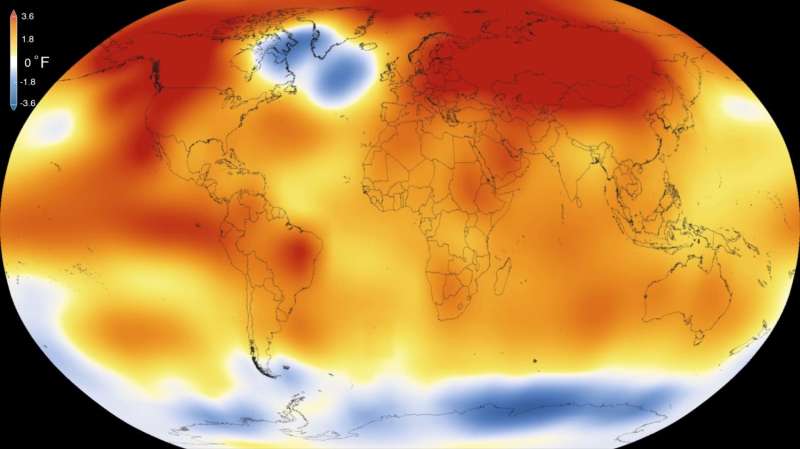Do teachers' climate change beliefs influence students?

A North Carolina State University study of middle school science classes explored whether teachers' beliefs about climate change influenced students' perceptions.
"The answer is yes and no," says Kathryn Stevenson, an assistant professor in NC State's College of Natural Resources and lead author of a paper describing the study, published in PLOS ONE. "While students generally mirror a teacher's belief that global warming is happening, when it comes to the cause of climate change, students reason for themselves and reach different conclusions than their teachers do."
Stevenson said the study included 369 middle school students in coastal North Carolina, a region at high risk of sea-level rise and related effects of climate change.
While more than 95 percent of the world's climate scientists attribute global warming to human causes, only about half of U.S. adults agree. Teachers share those views, suggesting such polarization over climate change causes may be spread through classroom teaching.
"We know that adults' views of climate change are strongly related to their worldviews and ideology," Stevenson says. "Early adolescence is a time when students' views are still forming, and we wanted to find out which factors affect their beliefs about climate change."
Researchers found that having a teacher who believed climate change was occurring - as 92 percent of students in the study did - was a "strong, positive predictor" of students' belief in global warming.
However, students diverged from their teachers when it came to understanding the causes of climate change. Students who believed climate change was happening concluded it was caused by humans regardless of their teachers' beliefs.
"Students could interpret scientific information for themselves and deduce that climate change is human-caused or anthropogenic," says Stevenson, a former science teacher for grades 4-12. "The strongest factor in students' belief in human-caused climate change was their own knowledge of climate science."
Most middle school science teachers reported spending a short time focusing on climate change - one to two hours on average.
More information: How Climate Change Beliefs among U.S. Teachers Do and Do Not Translate to Students, Published: Sept. 7, 2016 in PLOS ONE.
Journal information: PLoS ONE
Provided by North Carolina State University
















